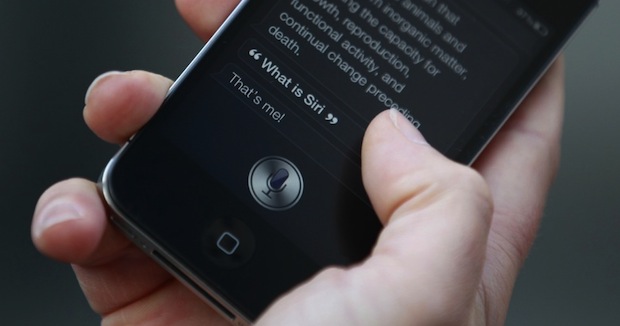Google throws stones from its glass house, calls Siri 'competitive threat'

Eric Schmidt, in another round with U.S. senators to face questions over Google's alleged anti-competitiveness, says Google is threatened by Apple's latest player in the search market: Siri.
"Apple has launched an entirely new approach to search technology with Siri, its voice-activated search and task-completion service built into the iPhone 4S", Schmidt wrote in response to written questions posed by antitrust subcommittee lawmakers on Friday.
While other challenges faced by the company include Facebook's integration of Bing as its default search option, and losing its real-time search of Twitter and other up-to-the-minute results, Siri appears to make Google worry the most.

Apple and Google, seemingly up until recently, were married in the technology world. Though signs of fraying of the carefully crafted relationship had appeared over the past year, it has since become clear that Apple was to 'divorce' itself from the search giant.
Though Apple has no primary stake in the search engine market, instead leveraging the capabilities of Google, as the iPhone's primary search engine, and Microsoft's Bing as another choice for consumers, Schmidt nevertheless sees the Cupertino-based technology giant as a threat to its global marketshare statistics.
Schmidt, who currently serves as Google's executive chairman, insisted however that Google was "not dominant" in web search, as lawmakers contended.
Firstly, he needs to convince primarily the U.S. authorities, rather than the European authority underdogs, that Google is not anti-competitive. If anything, to come across as 'wounded' and 'the victim' in all of this will score Schmidt bonus points. Secondly, and crucially, it needs to remain as the industry leader in search and mobile spaces; while appearing not to call Siri anti-competitive in itself, to push others into thinking it is.
It's a difficult balance to strike. But amid Schmidt's hedging answers, as part of his repeat Senate hearing, Apple may do more damage to Google than U.S. and European antitrust authorities.
Apple seems to have designed Siri in such a way that it only uses Google when it really has to; in a part to appear as truly 'intelligent', whilst also striking a blow to Google, by performing the bare minimum as part of their ongoing 'divorce' proceedings.
When asking Siri a question, it searches the web only as a last resort, bypassing Google as its default search engine, instead to claim the best answer it can from Wolfram Alpha, Yelp or other web services. Naturally, Google sees this as a threat.
Knowing full well that though Google has 44 percent of the mobile marketshare, with Google as the default search on its Android devices, and Apple only has 27 percent of the U.S. mobile slice, the numbers are beginning to collide. Google is quietly panicking.
But Schmidt is not alone in his Siri suspicions.
I, for one, could not for a moment be sarcastic, cruel or tormenting to Siri, unlike the millions of users worldwide that badger the assistant with inane, sexually-explicit questions -- just by the off chance it is more intelligent than Apple lets on, and texts my entire phonebook contact list my deepest, darkest secrets as I sleep.
You never know.
Related:
- SmartPlanet: How Apple's Siri really works
- CBS News: Lost in translation: Siri cannot understand the Scottish accent
- CNET: Schmidt sees Siri as a 'threat' to Google's search business
- Bing integrates Facebook likes in search results
- Google Realtime Search: Exit Twitter, enter Google+
- Google search share dips; Bing and Yahoo catching up
- Android grows in U.S. smartphone market; Samsung holds steady